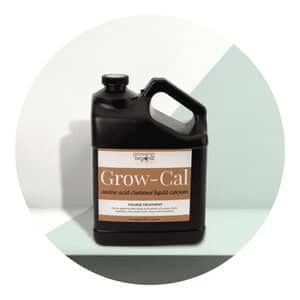How to grow organic Pineapple
Are you looking for a way to enjoy fresh, juicy pineapples without all the unhealthy additives and chemicals?
Growing organic pineapple is a great way to both save money and ensure that what you’re eating is full of healthy, natural ingredients.
Whether you’re an experienced gardener or just getting started in the world of horticulture, growing organic pineapple is within your reach.
With the right tips, tools, and techniques, anyone can learn how to grow their own organic pineapple at home.

Pineapple Menu
What is Organic Pineapple?
Organic pineapple is a type of fruit grown without the use of synthetic fertilizers, herbicides and pesticides.
It’s an incredibly popular option for those looking to enjoy delicious, juicy fruit while also trying to ensure the healthiest choice possible.
With the growing interest in eating organic and sustainable food sources, it’s no wonder that organic pineapple has been gaining attention lately.
Organic farming practices are used to grow organic pineapple which helps protect biodiversity and ensures that natural resources like water and soil are preserved.
Organic pineapples typically require more care than conventionally grown varieties due to their vulnerability to pests and diseases.
But with attentive management, these fruits can be produced successfully with minimal environmental impact.
Environmental Benefits of Growing Organic Pineapple
Organic pineapple production provides numerous environmental benefits that are beneficial for both nature and those who consume the fruit.
Not only does organic farming of pineapples reduce pesticide runoff and help preserve biodiversity, but it also helps combat global warming.
It is important to understand not only how to grow organic pineapple but also why it is important from an environmental standpoint.
Organic farming methods decrease the use of harmful pesticides, which can pollute water sources and cause harm to wildlife.
Organic farming also promotes a healthy soil ecosystem by utilizing composting techniques and cover cropping, which helps prevent erosion and improves soil fertility.
In addition, organic farming encourages natural pest control by increasing biodiversity in the environment without the use of synthetic chemicals.
Choosing the Right Variety
Organic pineapples are a delicious and nutritious addition to any garden.
However, successful cultivation of pineapple requires careful planning to ensure the right variety is chosen for the climate and soil type.
With proper selection, a thriving organic pineapple patch can be enjoyed each season.
When choosing an organic pineapple variety, it is important to consider the local environment’s growing conditions.
Temperature fluctuations, exposure to sunlight, soil composition and moisture levels should all be taken into account.
Each variety has its own unique characteristics that will influence how well it grows in a given area.
For instance, some varieties may require warmer temperatures than others or more frequent watering schedules due to their intense flavor profiles or higher sugar content.
Gardeners should take this into consideration when selecting the right variety of organic pineapple for their needs.
Preparing the Soil
Organic pineapple is a delicious and nutritious addition to any garden.
But if you want your pineapple harvest to be sweet and juicy, it’s important to make sure that the soil you grow it in is properly prepared.
Pineapple prefers warm, well-drained soil with an acidic pH level between 4.5 and 5.5.
Here are some tips on how best to prepare the soil so your organic pineapple crop can reach its full potential.
First of all, enrich the top 12 inches of soil with compost or aged manure for added nutrients and organic matter that will help retain moisture in the soil without becoming waterlogged or dense.
Let us savor, what nature gave us Organic pineapple, oh how happy it makes us Fruity and sweet, delightful to eat A taste of summer all year around Refreshing and marvellous, an exotic treat Grown without pesticides, with love and care for the soil A wholesome snack enjoyed by all in good health with no toil Organic pineapple gifts life, sustenance and joy aplenty.
Chappy The Gardener
Planting and Caring for Organic Pineapple
Organic pineapple is an increasingly popular crop for gardens.
It is an easy fruit to grow and maintain, with many health benefits.
Not only does it taste great and look beautiful in the garden, but organic pineapple has proven to boost immunity and provide essential vitamins for optimal health.
It begins by selecting a location with plenty of sun – at least six hours per day – that’s sheltered from strong winds.
Plan on spacing your plants three feet apart; if planting pineapple from seeds, start them indoors in potting soil approximately four months before the last expected frost in your area.
When they’re ready to be transferred outdoors, select fertile soil that drains well.
Issues to Consider when Growing Organic Pineapple
Organic pineapple is a sweet and nutritious fruit that can be grown right in your own backyard.
Many people find growing organic pineapple to be a rewarding experience and it has many health benefits.
Organic pineapples are grown without the use of pesticides or other chemicals, making them safer for consumption than conventional varieties.
Additionally, they require less water and are often more resistant to disease compared to non-organic varieties.
In order to grow successful organic pineapples, it is important that you understand the soil requirements and climate needs of this particular type of fruit.
The soil must have good drainage and slightly acidic pH levels in order for the plant to thrive.
Moreover, temperatures must not dip below 60°F (15°C) during the growing season.
Benefits of Organic Fertilizer for Growing Pineapple
Organic fertilizer can make a huge difference in the success of growing pineapple, and there are several benefits to using it.
Utilizing organic fertilizer ensures that the soil will remain rich and healthy, allowing pineapple plants to thrive.
Additionally, organic fertilizer is composed of natural materials that are not harmful to the environment or any humans or animals that may come into contact with them.
Organic fertilizers provide necessary nutrients for a strong foundation for the pineapple plant’s growth.
This includes nitrogen, phosphorus, and potassium which encourage vigorous top-growth and an abundant number of fruit.
Furthermore, these fertilizers allow for long-term sustainability as they release slowly over time rather than all at once like synthetic fertilizers do.
By using organic fertilizer when growing pineapples you can be sure that your plants receive proper nutrition without any harm to yourself or your environment!
Types of Organic Fertilizer to Use
Organic pineapple farming is becoming increasingly popular due to the numerous health benefits and environmental advantages it offers.
For growers looking to maximize their productivity, understanding the types of organic fertilizer available for use is essential.
Organic fertilizers are derived from plant and animal sources, such as manure or composted materials, and typically contain nitrogen, phosphorus and potassium (N-P-K) which are important for healthy crop growth.
Organic fertilizers also help improve soil structure by providing beneficial microorganisms which increase aeration and water drainage in the soil.
Some common types of organic fertilizer include blood meal, bone meal, fish emulsion, worm castings and compost tea.
Blood meal is a powerful source of nitrogen that can be used to promote rapid vegetative growth while bone meal provides a slow-releasing phosphate that helps build strong root systems.
Can you grow a pineapple from a pineapple?
Pineapples are a delicious tropical fruit that’s beloved around the world.
Their sweet and juicy taste makes them a great addition to any dish.
But did you know that you can grow your own pineapple at home?
Growing an organic pineapple is possible with patience, dedication, and the right supplies.
With some time and effort, you’ll be able to watch your very own pineapple come up out of the ground!
Plus, if done properly, you can have an endless supply of pineapples season after season – no need for store-bought produce again! So what are you waiting for?
How long does it take to grow a pineapple?
Growing an organic pineapple is a rewarding experience that can take some time.
But how long does it actually take to grow a pineapple?
On average, it takes between 18 and 24 months for a pineapple plant to produce its first edible fruit.
The growing process begins with planting the crown of a store-bought pineapple in soil or water.
The crown will then send out shoots, which will develop into an entire plant that is ready for harvesting when the fruit has ripened.
This process usually takes anywhere from three to six months depending on the conditions in which you are growing your pineapple, such as climate and soil type.
Once the fruits have developed, they should be harvested when their skin has turned yellow and their leaves have started to dry up slightly.
This signals that the fruits are ripe and ready for eating!
What is the best way to grow pineapples?
Pineapple is a delicious and nutritious fruit that can easily be grown right in your own backyard.
Growing organic pineapple requires careful planning and effort, but the result of juicy, sweet pineapples makes it worth the effort.
Organic pineapple cultivation begins with soil preparation.
Soils with a pH between 5 and 6 are ideal for growing pineapple plants.
Amending your soil with well-rotted manure or compost will help improve fertility and enhance drainage levels for optimal growth conditions for the roots of your plants.
Additionally, adding mulch over the planting area can help maintain moisture levels in hotter climates and protect against weed competition.
How many times will a pineapple plant produce fruit?
Growing organic pineapples is a great way to enjoy the sweet and tangy taste of this tropical fruit in your own backyard.
But one question many gardeners have is: How many times will a pineapple plant produce fruit?
The answer is that it depends on several factors, including the variety of pineapple, growing conditions, time of year, and regular maintenance.
Generally speaking, most varieties can produce multiple crops in a season if they are given enough care throughout the growing process.
However, some varieties may only yield one fruit per season or even less if not cared for properly.
To maximize your chances of having multiple harvests from your pineapple plant each year, make sure you provide it with plenty of sunlight and water as well as regular fertilizer applications.
Do pineapples need full sun?
It’s a question many budding gardeners have before growing their own organic pineapple.
Growing your own pineapple is an exciting and rewarding experience, but there are some things to consider when planting the fruit-bearing plant.
When it comes to sunlight, pineapples thrive in bright, direct light; so much so that they may even require six hours of direct sun each day.
However, if you’re living in a hot climate with intense sunlight, make sure to provide your pineapple plant with some shade or it may become scorched by the heat.
Additionally, be aware that even in cooler climates with less intense sunlight, too much direct exposure can cause the leaves of the plant to burn or turn yellowish in color.
Can you Grow Pineapple Hydroponically?
Pineapples are a delicious tropical fruit that can be grown in many different ways.
One of the most popular methods is hydroponic gardening, which eliminates the need for soil altogether.
Hydroponics involves using nutrient-rich water and other materials to provide plants with the necessary nutrition to survive and thrive.
If you’re wondering if it’s possible to grow pineapple hydroponically, then read on!
Hydroponic pineapple cultivation requires a bit more effort than traditional soil-based gardening techniques, but it ultimately produces much better results.
All you need is an appropriate container, such as a plastic tub or bucket, some potting mix or coconut coir, and an adequate supply of water and nutrients.
Pineapple is a delicious tropical fruit that can be grown in all parts of the world, provided that temperatures do not drop below 20 degrees Fahrenheit (F).
Can you Grow Pineapple Aquaponics?
Growing organic pineapple can be an exciting and rewarding experience, especially when you’re looking to expand your aquaponics system.
Aquaponics is a sustainable farming method that combines raising aquatic animals with cultivating plants in water.
This allows for multiple sources of food production with limited resources.
So can you grow pineapples through aquaponics? The answer is yes! With the right set-up and knowledge, it’s absolutely possible to cultivate pineapples in an aquaponic environment.
First off, let’s discuss the basics of how to get started with growing organic pineapple through aquaponics.
You’ll need a good-sized tank or container for your fish, as well as some kind of grow bed for your plants.
The plants should be given ample sunlight and the tank should be placed in a sunny spot.
The water should be treated with beneficial bacteria for the fish to live and thrive.
Can you Grow Pineapple in a Raised Beds?
Pineapple is a tropical fruit that can be found in many parts of the world, but it is not typically grown in raised beds.
Many gardeners may wonder if they can grow pineapple in a raised bed and if so, how?
Growing organic pineapple in a raised bed requires some special consideration and preparation.
If you are interested in growing your own organic pineapple, there are several things to consider before starting your project.
First, you must choose where to locate the raised bed as pineapples need plenty of sunlight and warmth to thrive.
Additionally, considering soil quality is important as pineapples require well-draining soil with an acidic content between 5 and 6.5 pH.
It’s also beneficial for the soil to contain an ample amount of compost and manure for added nutrients essential for healthy plant growth.
In conclusion,growing organic pineapple is a rewarding experience.
Not only does it provide delicious and nutritious fruit, but it also helps to support sustainable practices that ensure the health of our environment.
From selecting the right soil type to proper fertilization and mulching techniques, every step in the process contributes to a successful crop of pineapple.
With patience and dedication, anyone can successfully grow organic pineapple in their own home or garden.
Click To Grow
Helps Us Grow – Share If You Like

















